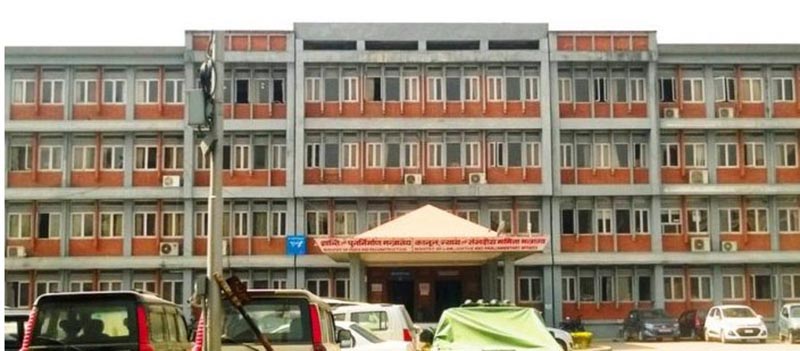Jail term till death proposed for grave violations
- The government is of the view that special detectives need to investigate these cases because regular police may not have the capacity to do the job
Kathmandu, August 12
The Ministry of Law, Justice and Parliamentary Affairs has prepared a draft bill to domesticate Geneva Conventions with the objective of removing the gap in the domestic legal system which could also serve as a strong deterrence against forces that could take up arms against the government or non-state actors in future.
An official at MLJPA, who is involved in the drafting process, told THT that the new bill proposes imprisonment till death for serious violations of the provisions of Geneva Conventions that basically deals with the rules of safeguarding humanity during conflict.
According to the official, willful killing, use of human beings for biological experiment (attempt to make somebody guinea pig), killing somebody after taking them hostage, seizing individual’s property during conflict, would amount to grave breaches of Geneva Conventions. The new bill also stipulates that if the perpetrator committed war crime even outside Nepal, then that would be punishable.
The bill stipulates that cases of violation of Geneva Conventions will be filed in the special court and investigation will be carried out by special investigators. “The government is of the view that special detectives need to investigate these cases because regular police may not have the capacity to do the job,” the MLJPA official said. The bill prohibits use of sensitive emblems during conflict. It proposes reparation for victims.
International humanitarian law expert Gita Sangraula said enactment of Geneva Conventions laws was long overdue as Nepal ratified these conventions in 1964. Sangroula said domestication of Geneva Conventions was long overdue.
“India ratified Geneva Conventions in 1954 and enacted domestic laws to incorporate those provisions in 1959. We ratified these instruments in 1964 and yet we have not made our laws on par with those provisions,” Sangroula said and added that domestication of Geneva Conventions would alone provide for sufficient compensation to the victims. Had we domesticated the Geneva Conventions before the Maoist conflict started, stakeholders could have clearly told the warring parties what provisions of domestic law they clearly violated,” she said.
She further said the new penal code criminalised genocide but it did not criminalise war crimes. She said domestic legislations were needed on the Geneva Conventions as those international instruments were based on the premise that war happens between the states.
“There are some who argue that murder committed during conflict and peace time should be dealt with by the same law, but I think murder committed during conflict should not be dealt with by the regular penal code. On the contrary, such crimes should be dealt with by Geneva Conventions laws,” she argued.
Senior Advcoate Dinesh Tripathi said the government must ensure that Geneva Convention Act Bill conforms with the provisions of Geneva Convention. “We have seen in the past that the government tried to domesticate some international treaties but failed to incorporate the full spirit and provisions of those conventions. This should not happen with Geneva Conventions,” he said and added that the government must consult all the stakeholders before sending the draft to the Parliament.
Tripathi said that during the Maoist insurgency both sides – the state and the Maoists – massively violated common Article 3 of the Geneva Convention.
Advocate Raju Chapagain said domestication of Geneva Conventions would enhance the capacity of Nepal’s investigators in crimes against humanity and war crimes.
Spokesperson for the Ministry of Law, Justice and Parliamentary Affairs Dhanraj Gyawali said that his ministry had been trying to finalise the draft of Geneva Conventions Act Bill but he was not sure when the ministry would finish it. “Efforts started in 2007, but we have not completed the draft yet so it will basically depend on our national commitment,” he said.






